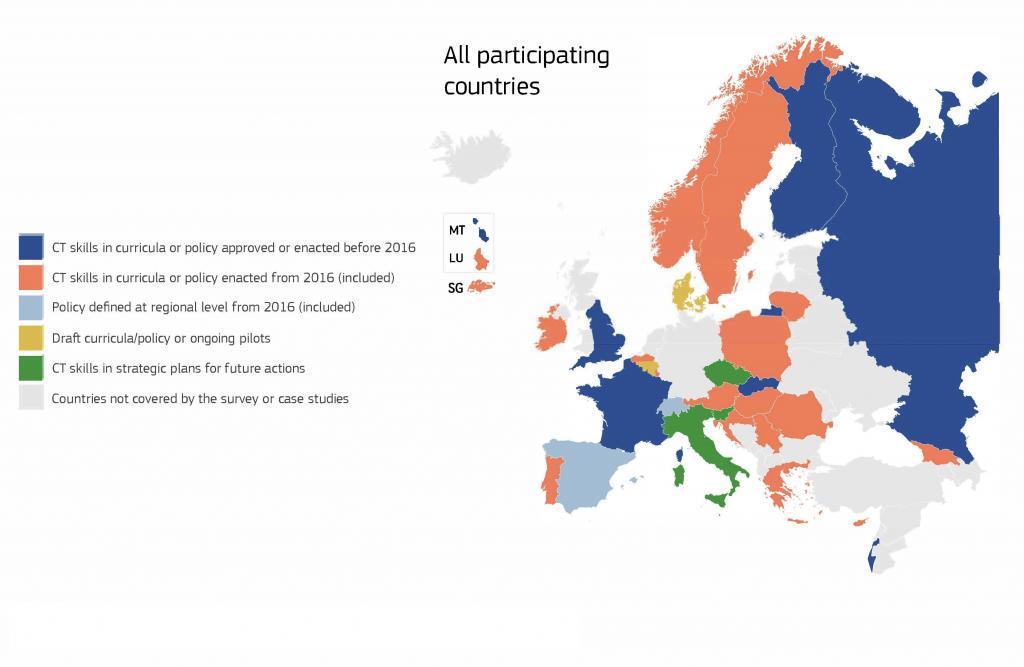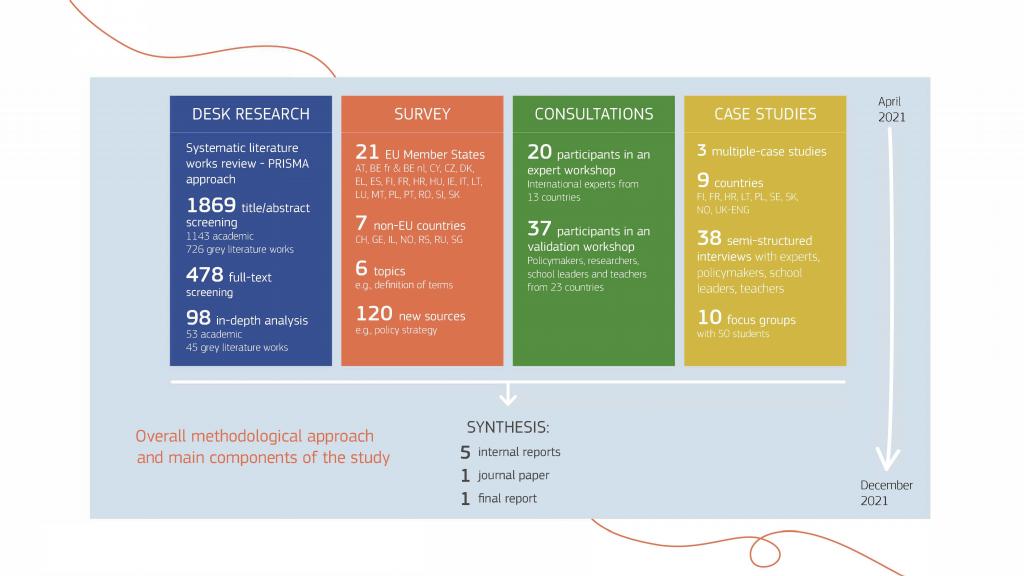The European Commission set out six priorities for the 2019-2024 period including one named “A Europe fit for the digital age”. As part of this digital strategy, the European Commission strives to introduce new generations of technologies and empower people through the use of these. This agenda was accompanied with the 2021 “Digital Education Action Plan (2021 – 2027) – Resetting education and training for the digital age” which set out policy initiatives in the European Union (EU) that support the sustainable and effective adaptation of education and training systems in EU Member States to make them more fit for the digital age. The Digital Education Action Plan has two priority areas: 1) Fostering the development of a high-performing digital education ecosystem, and 2) enhancing digital skills competences for digital transformation. As such, computing education fits under the second priority area of the Digital Education Action Plan as a requirement to strengthen young people’s digital skills and competences.
The research study “Reviewing Computational Thinking in Compulsory Education: State of Play and Practices from the Field” dives into the role of computational thinking in compulsory education in some of Europe’s Member States as well as outside the EU. This study was funded by the European Commission’s Joint Research Centre (JRC) and was carried out by the Institute for Educational Technology of the Italian National Research Council (CNR-ITD), together with European Schoolnet (EUN) and Vilnius University (VU) from April to December 2021. The study aims to build on the JRC’s earlier report “Developing Computational Thinking in Compulsory Education: implications for policy and practice”. This earlier JRC report provided an overview of research findings as well as grassroots and policy initiatives for developing computational thinking skills in compulsory education in Europe.

The “Reviewing Computational Thinking in Compulsory Education: State of Play and Practices from the Field” research study aims to take into consideration the impact of the COVID-19 pandemic and all the opportunities and challenges it has presented in the realm of digital transformation and the education sector.

Conclusions
The study analysed the situation in 29 European countries of which 18 are Member States and seven are other European countries. Each of these countries had introduced basic computer science concepts in their educational curriculum. Notably, Denmark is piloting many actions to incorporate computational thinking skills in its curriculum. Overall, three different approaches were observed in the integration of computational thinking in compulsory education:
- A cross-curricular approach where in basic computer science concepts are part of all subjects and teachers share the responsibility for developing computational thinking skills
- A separate subject wherein basic computer science concepts are taught in a computing-related subject
- As part of other subjects wherein basic computer science concepts are integrated within some other curriculum subjects
The research also notes that working on real-life problems and encouraging students to create their own programmes, applications, animations, video games and so on made for the most effective pedagogical approaches to developing computational thinking skills. Through these methods, students were able to move from being passive consumers of technology to active creation of digital content and objects.
This comprehensive research study is available for download and we invite you to find out what the recommendations are to start implementing computational thinking in compulsory education.
© European Commission

